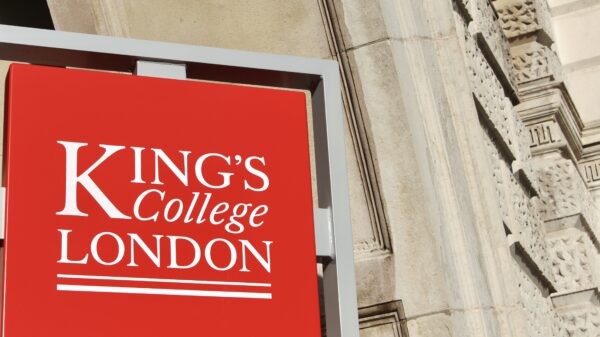Staff writer Samira Siakantari, an exchange student at UCLA, recounts her experience of the police crackdown on the UCLA Pro-Palestinian encampment, arguing student protestors from UCLA to KCL should keep fighting.
From Columbia to UCLA, and now King’s College London, the lawns and quads of universities around the world are being transformed into powerful symbols of resistance, unity, and solidarity. Student-led encampments have been steadily emerging as a response to the escalating violence in Palestine, calling for a ceasefire, and the divestment of academic institutions from Israel. I am a second-year student at King’s, currently on a semester abroad at the University of California, Los Angeles (UCLA), my time here has been deeply impacted by the ongoing protests and I have experienced first-hand the passionate and fearless activism behind the movement.
The UCLA encampment was established on 25 April 2024 and operated for almost a week until it was dismantled by police. Across campus, hopeful chants filled the air: “Free, free Palestine!”, “Disclose, divest, we will not stop, we will not rest!”, “Peaceful protest!”. These chants did not relent, even while the encampment was violently attacked by a mob of counter-protestors late at night on 30 April through to the morning of 1 May. The attack was widely broadcast, the deafening sound of media and police helicopters echoing across campus. Yet, the aggressors were not dispersed for over three hours, with campus security standing by, chatting, and taking videos on their phones.
The events of 30 April 2024 sparked outrage across the university community. It was clear the administration did not care enough to sufficiently protect their students against violent assailants. On the morning of 1 May, the campus was overrun by police helicopters, and news of a police sweep of the encampment spread. My peers and I flocked to the encampment to support those already protesting. Within the encampment we experienced unity, peace, kindness, and community. Outside the student-built barriers of the encampment was a sea of police cars, officers in riot gear, and snipers on the roofs of surrounding buildings.
Intimidation flew through the air, with the looming threat of police action hanging over us into the night and early morning. The police made their first attempt to enter at 1:30am, launching flash bangs, and pointing guns at the crowd of students who formed a human chain around them. The encampment was finally taken down around 3:00am, with over 200 arrests made.
Unlike many of my peers, I escaped without arrest or injury, calling my mother as I ran away to let her know that I was safe. What stuck with me the most from that night was my phone call with her. I remember her voice trembling, not with worry for my safety, but with a devastating sadness. Her words will forever linger with me: “I didn’t know whether or not you were safe for a few hours, and I was distraught, I can’t imagine how all the mothers feel in Gaza, the mothers who have no idea where their children are, the mothers who have lost their babies to this war.”
One of the things that really stuck with me following my experience on the night of 1 May 2024, was the staggering difference in the way police treated violent mobsters who assaulted students with fireworks, pepper spray, etc., and students engaging in peaceful protest – a right protected by the First Amendment in the US. Not one counter-protester was arrested on the night of the attack, meanwhile, student and faculty protestors were brutalised, injured, and arrested by police the following night. Somehow, in the eyes of the law taking a peaceful stand against violence warrants police action, while actual violence is negligible. It is clear where the alliances of university administration, and law enforcement lie – and it is not with the people’s movement for the liberation of Palestine.
While the main UCLA encampment was torn down early in the morning of 2 May, disruptions continued across campus, prompting a weeklong shutdown. It has been incredibly encouraging to see the movement spread to KCL and other universities in London. At the end of the day, we are all students. But we have the privilege of a higher education, unlike our counterparts in Gaza, who have lost not just their access to education, but almost everything they hold dearly. It is our duty to be their voice, to stand for an end to the violence, to prevent any more atrocities taking place.
Protest is a powerful tool, one harnessed by many students throughout history to battle injustice. To be able to protest is to be able to freely express grievances to those in power. Civil disobedience shouldn’t be a threat to structures of power, providing those very structures are standing on the right side of history. The violent and oppressive responses from university administrations, law enforcement and members of government are signs that they know they are wrong. The tides are changing, the atrocities they perpetrate aren’t going unnoticed. Therefore, they fear the growing public consciousness. This has been exemplified by the suspension of three KCLSU officers in late November following their condemnation of KCLSU’s “tight-lipped attitude on Palestine” on social media.
To those currently protesting: well done. Be proud, be strong, and be loud.
















